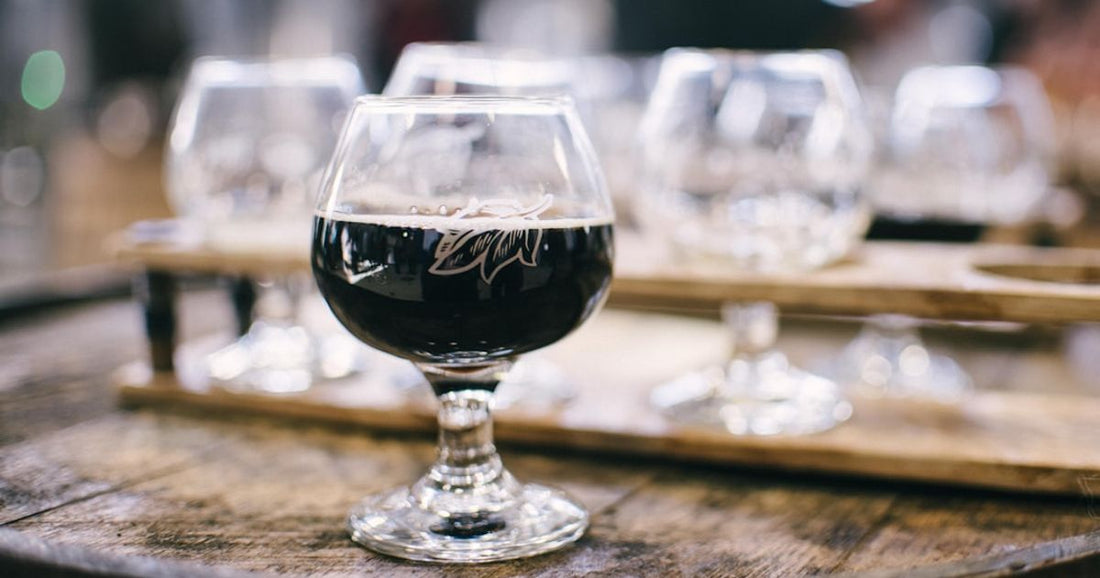
Storing Wine for Optimal Aging
Share
Wine aging is a delicate art that can transform a good wine into an extraordinary one. The process of aging allows the wine to develop complexity, soften tannins, and achieve a balance that can only be attained over time. However, for wine to age gracefully, it must be stored under optimal conditions. The key factors that influence wine aging are temperature, light, and humidity. In this article, we will delve into the secrets of perfect wine aging, exploring how these elements interact with your wine and how you can create the ideal environment for your wine collection to mature beautifully.
Key Takeaways
Before we dive into the specifics, let's summarize the key points you'll learn from this article:
- The importance of maintaining a consistent temperature for wine storage.
- How light exposure can negatively affect the aging process.
- The role of humidity in preserving wine corks and labels.
- Tips for creating an optimal aging environment at home.
Understanding these aspects will empower you to store your wine collection in a way that enhances its aging potential, ensuring that each bottle reaches its peak flavor and aroma.
The Crucial Role of Temperature in Wine Aging
Temperature is arguably the most critical factor in wine storage. It can make or break the aging process, influencing the rate at which a wine matures and its eventual quality.
Optimal Temperature Range
The ideal temperature for storing wine for aging is between 55°F (13°C) and 58°F (14°C). This range strikes a balance, slowing down the aging process enough to allow the wine to develop complexity without risking spoilage or premature aging. Temperatures above this range can accelerate aging, leading to the loss of freshness and the development of undesirable flavors. Conversely, temperatures that are too low can halt the aging process altogether, preventing the wine from evolving.
Consistency is Key
Equally important as the temperature itself is its consistency. Fluctuations in temperature can cause the wine to expand and contract, potentially damaging the cork and allowing oxygen to enter the bottle. This oxidation can lead to spoilage, ruining the wine. To avoid such pitfalls, it's crucial to store your wine in a location where the temperature remains stable year-round.
For more detailed insights into optimizing temperature for wine storage, check out our article on Optimizing Temperature for Wine Storage.
The Impact of Light on Wine Aging
Light, particularly ultraviolet (UV) light, can be detrimental to the aging process of wine. This section will explore how light affects wine and what measures you can take to protect your collection.
The Dangers of UV Light
UV light can cause the degradation of organic compounds in wine, leading to the development of unpleasant aromas and flavors often described as "lightstruck." This is particularly a concern for wines stored in clear bottles, although even wines in colored bottles can be affected if exposed to strong light over extended periods.
Protecting Your Wine from Light
To safeguard your wine from the harmful effects of light, store it in a dark place away from direct sunlight and artificial sources of UV light. If you're displaying your wine collection, consider using UV-protected glass or LED lighting, which emits minimal UV light. Additionally, storing wine in its original cardboard box or in a wine cellar designed to block out light can provide extra protection.
Maintaining Proper Humidity for Wine Storage
Humidity plays a significant role in wine storage, affecting both the wine and its packaging. Let's explore the ideal humidity levels for wine storage and how to maintain them.
Ideal Humidity Levels
The optimal humidity level for storing wine is between 60% and 70%. This range is crucial for keeping the cork in good condition. Too little humidity can cause the cork to dry out, shrink, and allow air to enter the bottle, leading to oxidation. On the other hand, excessive humidity can promote mold growth on the cork and wine labels, potentially damaging them.
Controlling Humidity
To control humidity in your wine storage area, you can use a humidifier or dehumidifier, depending on the natural humidity levels of your environment. It's also beneficial to use a hygrometer to monitor humidity levels regularly, ensuring they stay within the desired range.
For more on protecting your wine from temperature fluctuations and maintaining ideal storage conditions, visit our article on Protecting Your Wine from Temperature Fluctuations.
Creating the Perfect Environment for Wine Aging
Now that we've covered the critical factors of temperature, light, and humidity, let's discuss how to create the optimal environment for aging your wine at home.
Choosing the Right Location
The location of your wine storage plays a crucial role in its ability to age properly. Basements are often ideal due to their naturally cool and stable temperatures. However, if a basement is not available, any location that can be kept dark, with a consistent temperature and controlled humidity, will suffice. Avoid areas like kitchens or laundry rooms where temperatures and humidity levels fluctuate frequently.
Investing in Proper Storage Solutions
Investing in a wine fridge or building a custom wine cellar can provide the controlled environment necessary for optimal wine aging. Wine fridges are designed to maintain consistent temperatures and humidity levels, making them an excellent choice for collectors of all sizes. For those with larger collections or specific needs, a custom wine cellar can be designed to accommodate a wide range of conditions, ensuring your wine ages gracefully.
For guidance on building your own wine cellar, check out our article on How to Build a Wine Cellar at Home.
Conclusion
Storing wine for optimal aging requires attention to detail and an understanding of how temperature, light, and humidity affect the wine's development. By maintaining the ideal conditions discussed in this article, you can ensure that your wine collection ages to perfection, offering a symphony of flavors and aromas that only time can unveil. Remember, the key to successful wine aging is consistency and control over the storage environment. Whether you're a casual collector or a serious enthusiast, taking the steps to protect your wine will yield delicious rewards in the years to come.



